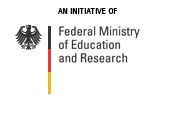Valentin Kahl: Cells meet plastics
-
 <ic:message key='Bild vergrößern' />
<ic:message key='Bild vergrößern' />
- The physicist Valentin Kahl is co-founder of the company ibidi. The company in Martinsried is focused on cell culture requirements and plastic-based microscopy equipment. Source: C. Vohler
30.10.2013 -
Valentin Kahl comes from a family with an entrepreneurial spirit. Even his grandfather was an entrepreneur. The Cologne-born scientist specialises in biophysics and in 2001 founded the biotechnology company ibidi, which is headquartered in Martinsried. The company is focused on culture vessels and microscopy accessories for work on living cells. The showstopper at the firm is that these devices are made using plastic instead of glass. Today, the company also produces cell-based assays and cell culture chips from high-performance polymers. In 2013, ibidi won the Innovation Award for German Industry in the ‘Medium Sized Company’ category.
It could be said that Valentin Kahl was given his entrepreneurial spirit whilst still in the cradle: “My grandfather has a very large company. The global economic crisis, a new beginning after 1945 – I can still remember the stories he used to tell me.” Even Kahl's father is entrepreneurially active, so it may at first seem surprising that the Rhinelander should have ended up working in science. An so in the early 1990s, the young academic moved to Heidelberg to study physics. Hoping to gain a PhD in biophysics, he then moved the LMU in Munich, where he studied in the department of Erich Sackmann. This was followed by his dissertation in 2001 on ‘Membrane-based microelectroelectrophoresis’.
The search for a suitable material
But then the entrepreneur in him finally broke through: “While still a graduate student, I discovered that there are no plastics on the market that have the same optical properties as glass, even though plastics can be better structured and processed.” Soon, Kahl and his colleague Roman Zantl were on the hunt for a suitable material. “We were ultimately successful in the flat panel display industry,” he explains. The two were immediately sure that this discovery was sufficient grounds to found a business. In one of the numerous business plan competitions in which they later participated, they noticed that “extremely strange ideas were being presented – and welcomed.” In comparison, their glass-replacing plastic seemed thoroughly down-to-earth. “If we succeed in getting everybody who uses glass to try our products just a single time, then that could open a huge market for us,” said the graduate students at the time.
Plastic for improved microscopy
For microscopy of living cells, plastic offers greater possibilities for cultivation than glass. This is because glass is too smooth. But on plastics, it is possible to create surfaces that allow the cells to feel right at home. The founders-to-be had hit a nerve: “We barely had our business plan completed when the first investors were knocking on our door,” says Kahl. The effect of this was to contemplate putting his doctoral studies on ice and to dedicate himself to setting up the company. However, the two researchers eventually opted to finish what they had started, and had some luck in the process. “We finished just in time. The financing for ibidi took place almost in parallel to the bursting of the ‘New Economy’ bubble in December 2001.”There were a total of four founders. On the team alongside Kahl and Zantl were fellow doctoral student Ulf Rädler, who also still works at ibidi, and LMU Professor Joachim Rädler. These two held about 15 percent of shares in the company, with the duo Kahl and Zantl controlling more than 50 percent. “Mr. Zantl and I always put our heads together for the important decisions.” This dual leadership settled into a harmony, and over the years the founders have become firm friends. The physicist admits somewhat apologetically that “If we sit together with our families in the evening, we rarely find topics other than the company.” He's counts himself lucky that his wife doesn’t complain. “Otherwise it would never work out”.
Growing despite an absurd idea
Ibidi has been on a growth course from the very beginning. Moreover, this has been steady growth without serious setbacks. “And this is with a disposable product!” emphasises Kahl. If you think about it, it was actually a somewhat outlandish idea. “That was the territory of an SME - not of a start-up!” Had ibidi first sold polymer-based flow chambers, then this would have been followed over the years by applications such as assays for chemotaxis, angiogenesis, and cell migration. Now, with the sale of reagents, the future path looks set to include a shift towards systems supplies.
38 employees work in the company Martinsried at this time, many of whom work part–time “because of the families”. In his spare time, Kahl – a father of two himself – heads off to the mountains: “In the winter we go skiing with our kids, and hiking in the summer.” But Kahl does not take part in the Martinsried campus football league, an ongoing feature of campus life for some years now: “Mr. Zantl does take part. I'm doing it Jogi Löw-style.” Jogi is the German national football trainer. “My sliding tackles would only make everybody angry.” Bearing this in mind, perhaps the ‘ibidi-Jögi’ is well advised to stay off the pitch. As for the colleagues that do take part, they seem to have found a comfortable spot at the bottom of the campus leagues. At the very least, they can be proud of the two ‘fair play’ awards that ibidi won in 2011 and 2012.
Author: Martin Laqua



